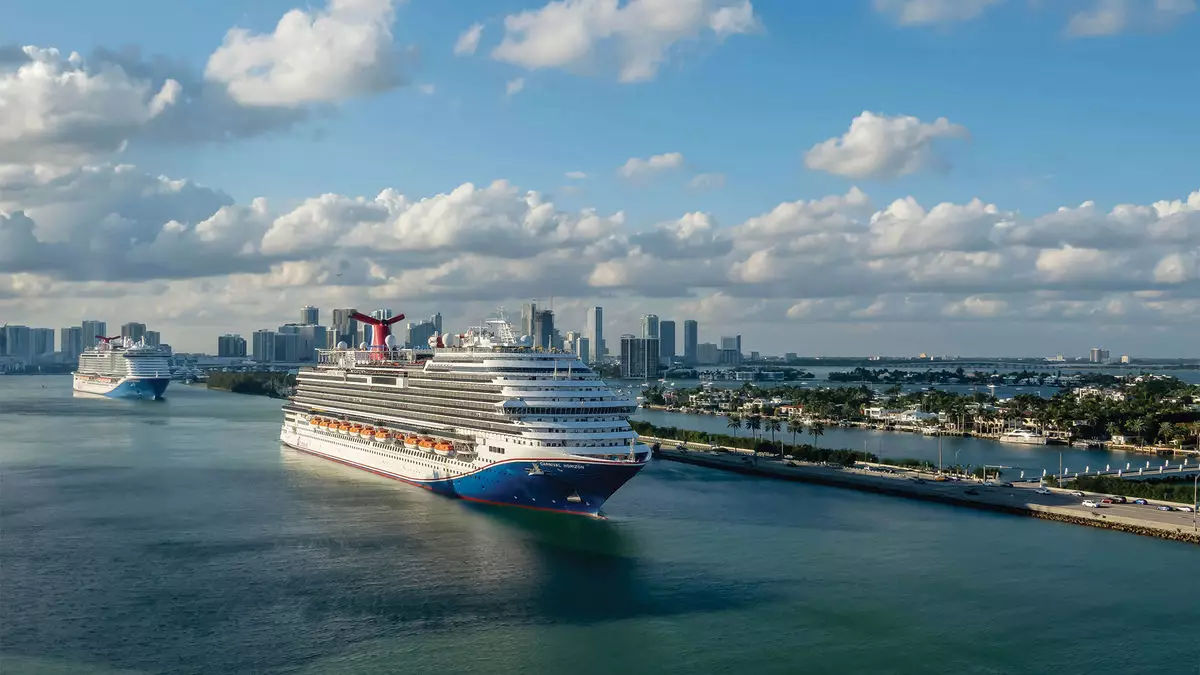Cruising remains one of the most popular vacation choices for travelers seeking a blend of relaxation and adventure on the high seas. However, the experience doesn’t have to start or end with the departure or arrival of a ship. Prominent figures in tourism are increasingly emphasizing the importance of pre- and post-cruise stays, aiming to extend travelers’ experiences beyond just the cruise itself.
Jean-Paul Rodrigue, an esteemed professor at Texas A&M University’s maritime business administration department, has highlighted a crucial challenge that travelers face: the “time-budget constraint.” Essentially, many American cruisers generally adopt a rigid vacation schedule, often limited to just one week. Rodrigue points out that this tight allocation of time significantly restricts their willingness or ability to explore the local ports of departure or arrival. For many, the objective of booking a cruise is straightforward: pay for the package, embark on the ship, enjoy the week-long journey, and return home.
This behavior reflects a broader trend among travelers who tend to neatly compartmentalize their holidays. The potential of a destination beyond the cruise experience is often overlooked, seen as an added obligation rather than an intrinsic part of their travel itinerary. This creates an opportunity for Destination Marketing Organizations (DMOs) to reshape how travelers perceive their vacations.
Brett Laiken, the Chief Marketing Officer of Visit Florida, recognizes this challenge as an opportunity to shift the narrative surrounding cruising. According to Laiken, the goal of their marketing strategy is to transform the perception of traveling to Florida as merely a starting point for a cruise into a fundamental part of the entire voyage experience. By encouraging travelers to view their time in Florida as an integral element of their overall trip, Visit Florida aims to enhance the allure of pre- and post-cruise stays.
“A holistic approach to cruising can redefine what it means to go on vacation,” Laiken noted. He emphasizes that the journey begins the moment travelers arrive in Florida, and he encourages travelers to think of their time there not as an afterthought but as the first leg of their adventure.
To facilitate this shift in mindset, Visit Florida has undertaken several targeted marketing campaigns, focusing on travel advisors. By engaging with these advisors—who have direct relationships with cruisers—Visit Florida aims to enhance awareness of local attractions and offerings that can complement a cruise experience. Workshops, webinars, and familiarization trips for advisors are among the methods employed to inspire them to promote travel packages that incorporate both land and sea experiences.
The outcome of these efforts has been promising. In the previous year, advisors who participated in the program successfully generated over $14 million in additional bookings. This considerable figure underscores the efficacy of strategic partnerships and marketing initiatives aimed at reshaping traveler expectations and habits.
Visit Florida isn’t alone in exploring the potential of pre- and post-cruise tourism. New Orleans & Company, for example, has also recognized the importance of fostering relationships with travel advisors to drive overnight bookings around cruise timelines. Rachel Funel, a senior account executive, advocates for making New Orleans an attractive destination for cruisers. By offering exclusive discounts and packages through travel advisors, the organization cultivates loyalty among both the advisors and their clients.
The model is straightforward: by making the booking process seamless and providing unique perks, New Orleans enhances the appeal of the city as a pre- or post-cruise destination. This commitment to quality service and targeted marketing helps ensure that both cruisers and travel advisors benefit from their association with New Orleans.
Destinations like Visit Lauderdale are also leveraging partnerships with travel agencies to build pre- and post-cruise bookings. By collaborating closely with agencies familiar with the area, they share knowledge of exciting activities while creating tailored packages for travelers. Such collaborative efforts not only promote local attractions but also fortify the relationship between the DMO and travel agencies.
As travel continues to evolve, the integration of pre- and post-cruise experiences represents a natural progression in the tourism sector. By tapping into the insights of experts like Rodrigue and innovators like Laiken and Funel, the industry is better poised to enrich travelers’ experiences, ultimately leading to increased satisfaction and loyalty. As destinations redefine their roles in the cruising ecosystem, it is clear that the journey begins long before guests set sail—and can extend well beyond their return.


Leave a Reply